Funny Math Riddles with Answers to Test Your Brain

Looking for a way to test your intellect while having a good time? There are numerous puzzles that can stretch your thinking and offer a playful challenge. These brain teasers are perfect for anyone wanting to mix a bit of entertainment with mental exercise. Whether you are solving them alone or with friends, they provide an excellent way to engage in some light-hearted yet thought-provoking fun.
Solving these puzzles encourages creativity, sharpens problem-solving skills, and enhances logical reasoning. The best part is that these activities can be enjoyed by all ages, from children to adults, offering something for everyone. With simple questions that lead to clever solutions, the experience is always rewarding.
These mental workouts are more than just a way to pass the time–they are an opportunity to laugh, think critically, and stretch the limits of your imagination. So gather your friends, or challenge yourself, and dive into a world of entertaining and stimulating queries.
Funny Math Riddles to Sharpen Your Mind
Stimulating your brain doesn’t always need to be a serious task. Sometimes, a well-crafted puzzle can engage your intellect while providing a good laugh. These challenges are designed to not only entertain but also to strengthen your critical thinking and problem-solving abilities. By working through tricky questions, you can enhance your cognitive flexibility and improve your ability to approach problems from different angles.
Why These Puzzles Are Beneficial
These mind teasers promote the development of various skills, including:
- Logical thinking: Understanding patterns and making connections between elements.
- Creative problem-solving: Approaching situations from unexpected perspectives.
- Attention to detail: Catching small details that are often overlooked in everyday life.
- Memory enhancement: Strengthening recall abilities and improving focus.
Examples to Challenge Yourself
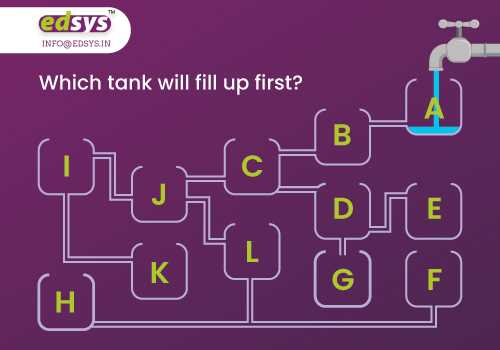
Try these fun exercises to put your mental agility to the test:
- What comes once in a minute, twice in a moment, but never in a thousand years?
- I am an odd number. Take away one letter and I become even. What number am I?
- The more you take, the more you leave behind. What am I?
By tackling these types of questions, you’re not only enjoying a mental workout but also sharpening the skills you use in everyday decision-making and problem-solving. Try to solve them quickly and see how your brain adapts to these fun challenges!
Why Math Riddles Are So Fun

Engaging in puzzles is a delightful way to challenge your thinking while having fun. These types of exercises are not just about finding the correct solution–they are about the journey to that answer. The excitement comes from the process of figuring out how to approach the question, seeing unexpected connections, and feeling a sense of accomplishment when you finally solve it. It’s this mental playfulness that makes them so enjoyable for people of all ages.
How They Keep You Engaged

These challenges are designed to captivate your attention and keep you engaged for longer periods. The best part is the element of surprise–often, the answer is simpler or more creative than you might expect. It’s this unpredictability that makes solving these puzzles so satisfying.
- Simple yet clever: The best challenges often look simple, but they require you to think outside the box.
- Instant gratification: The reward comes immediately when you discover the solution, giving a quick mental boost.
- Competitive edge: Trying to beat your previous time or solving faster adds an extra layer of excitement.
The Joy of Discovery
One of the key reasons these challenges are so entertaining is the feeling of discovery. Solving a tricky problem can bring a sense of triumph and excitement, much like solving a mystery. Whether you’re alone or with others, the experience of cracking a tough puzzle always brings a sense of joy and achievement.
Brain-Boosting Riddles for All Ages
Challenging your mind is not just for adults or experts. In fact, brain exercises can be enjoyed by people of all ages, from young children to older adults. These engaging puzzles provide an opportunity for everyone to enhance their cognitive skills in a fun and entertaining way. By tackling these stimulating challenges, individuals can improve their problem-solving abilities, creativity, and logical thinking, regardless of their age.
Perfect for Children and Adults
One of the great things about these exercises is their versatility. Simple tasks can be enjoyable and educational for younger participants, while more complex puzzles can keep adults engaged for longer. These challenges are not just fun; they also promote brain development, improve focus, and foster patience. Solving these types of problems together can also strengthen relationships and encourage teamwork, making them a great activity for family gatherings or group settings.
- For kids: Fun exercises help develop early cognitive skills and make learning enjoyable.
- For adults: Engaging in these activities keeps the mind sharp and improves decision-making skills.
- For families: Puzzles bring people together while fostering a sense of camaraderie.
Developing Lifelong Skills
By regularly solving these engaging challenges, participants develop skills that last a lifetime. Logical reasoning, attention to detail, and creative thinking are just a few of the cognitive abilities that are improved. As people grow older, keeping the brain active through fun tasks helps maintain mental acuity and can even delay cognitive decline. Whether it’s a quick mental break or a full-fledged problem-solving session, these activities contribute to lifelong learning and mental well-being.
Simple Yet Hilarious Math Challenges
Some of the most enjoyable puzzles are those that seem incredibly simple at first glance but offer surprising twists. These challenges often trick the mind with their straightforward nature, only to reveal unexpected answers that bring a smile. It’s the cleverness behind the simplicity that makes them so amusing, as they encourage you to think differently and laugh at the simplicity of the solution.
What makes these tasks so enjoyable is that they don’t require complex calculations or advanced knowledge. Instead, they rely on basic concepts, making them accessible to everyone. The fun lies in the way these exercises make you rethink familiar ideas, often leading to a humorous realization once the correct answer is uncovered.
Riddles to Improve Your Problem-Solving
Engaging in challenging puzzles is one of the most effective ways to sharpen your ability to think critically and solve problems. These exercises push you to break down a situation, evaluate potential solutions, and select the best course of action. As you practice, you develop a stronger mental toolkit for tackling real-world challenges, improving both your creativity and analytical thinking.
Benefits of Problem-Solving Exercises
- Enhance Logical Thinking: These tasks help you recognize patterns and think logically through complex situations.
- Boost Creativity: The best solutions often require out-of-the-box thinking, encouraging you to approach challenges from unique angles.
- Improve Decision-Making: The more problems you solve, the better you become at making fast, well-informed choices.
- Increase Focus: Working through difficult tasks improves concentration and attention to detail.
Example Challenges to Test Your Skills
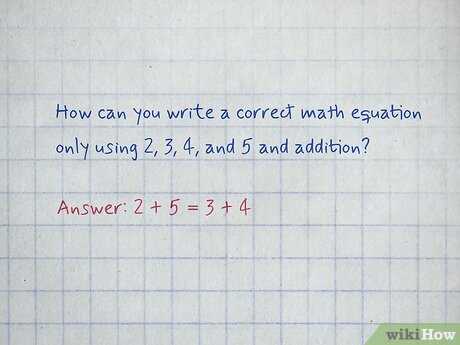
Try out these puzzles to practice your problem-solving abilities:
- I am always hungry, I must always be fed. The finger I touch, will soon turn red. What am I?
- What is full of holes but still holds a lot of weight?
- The more you take, the more you leave behind. What am I?
Solving these problems not only brings satisfaction but also hones your mental agility for daily life, preparing you to approach any obstacle with confidence and skill.
Mind-Bending Puzzles for Math Lovers
If you enjoy a good challenge that really pushes your mental limits, these complex puzzles are perfect for you. Designed to test your problem-solving abilities and analytical thinking, these tasks are ideal for those who thrive on solving intricate and thought-provoking problems. With a bit of patience and sharp thinking, you’ll uncover solutions that seem almost impossible at first.
The Challenge for Enthusiasts
For those who are passionate about numbers and patterns, these puzzles offer an opportunity to dive deeper into the world of logic and reasoning. Often requiring you to think many steps ahead, they can be both frustrating and exhilarating. The beauty lies in the complexity, where every answer unfolds like a well-constructed piece of a larger puzzle.
- Unraveling complex scenarios: These problems often involve multiple variables and hidden details that challenge your mental flexibility.
- Building critical thinking: Each solution strengthens your ability to approach problems from various angles and strategies.
- Mastering patterns: Understanding and recognizing underlying patterns is a key to solving many of these tough tasks.
Challenging Examples to Tackle
Test your skills with the following intricate problems:
- What number comes next in the sequence: 1, 4, 9, 16, 25, …?
- How many ways can you arrange six identical coins in a row so that no two heads are next to each other?
- What is the sum of the first 100 prime numbers?
Solving these puzzles will not only give you a sense of accomplishment but also provide valuable mental exercises for further developing your skills.
Tricky Questions with Surprising Answers
Some questions seem straightforward at first but quickly reveal their true complexity. These challenges often involve an element of surprise, where the answer is not what you would expect from the way the question is framed. The fun lies in the twist–solving these tasks requires you to think beyond the obvious and often leads to a satisfying “Aha!” moment when the solution finally clicks.
The beauty of these tricky questions is that they make you rethink your assumptions. They often play on language or common patterns, pushing your brain to process information in new and creative ways. Solving these is not just about finding the correct answer; it’s about understanding why the solution works and how your mind was tricked into thinking otherwise.
How Math Riddles Can Enhance Learning
Engaging in problem-solving exercises is a powerful way to deepen understanding and boost learning. These types of challenges encourage active thinking, helping learners to grasp key concepts more effectively. By presenting problems in a fun and interactive way, individuals are more likely to engage with the material and retain information. They foster critical thinking, creativity, and a deeper connection to the subject matter.
Such activities not only enhance cognitive skills but also make the learning process more enjoyable. By solving complex problems, students develop their ability to think logically and make connections between different ideas. This approach transforms the learning experience from a passive activity into an engaging and dynamic process, making it easier to apply knowledge in real-world scenarios.
Perfect Puzzles for Family Game Night
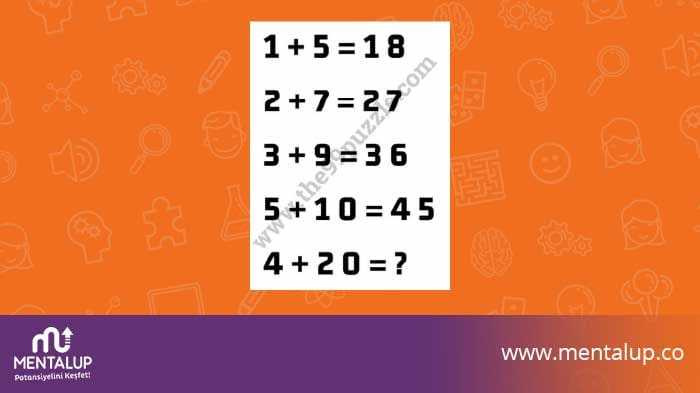
Family game nights are the perfect opportunity to bring everyone together for some fun, and engaging in problem-solving challenges can take the experience to the next level. These types of puzzles offer something for all ages, encouraging collaboration, creativity, and a bit of friendly competition. They allow family members to bond, work together, and have a great time while exercising their minds.
Why These Puzzles Are Ideal for Families
What makes these exercises ideal for a family setting is their versatility. Simple enough for children to enjoy, yet challenging enough for adults, they create an inclusive environment where everyone can participate. Solving problems together fosters teamwork and helps improve communication skills within the family.
- Encourages teamwork: Families must collaborate to find solutions, promoting unity.
- Stimulates critical thinking: Each puzzle requires different approaches, sparking creativity in both young and older minds.
- Builds problem-solving skills: Everyone learns new ways of tackling challenges, making them better prepared for real-world situations.
Fun and Challenging Examples
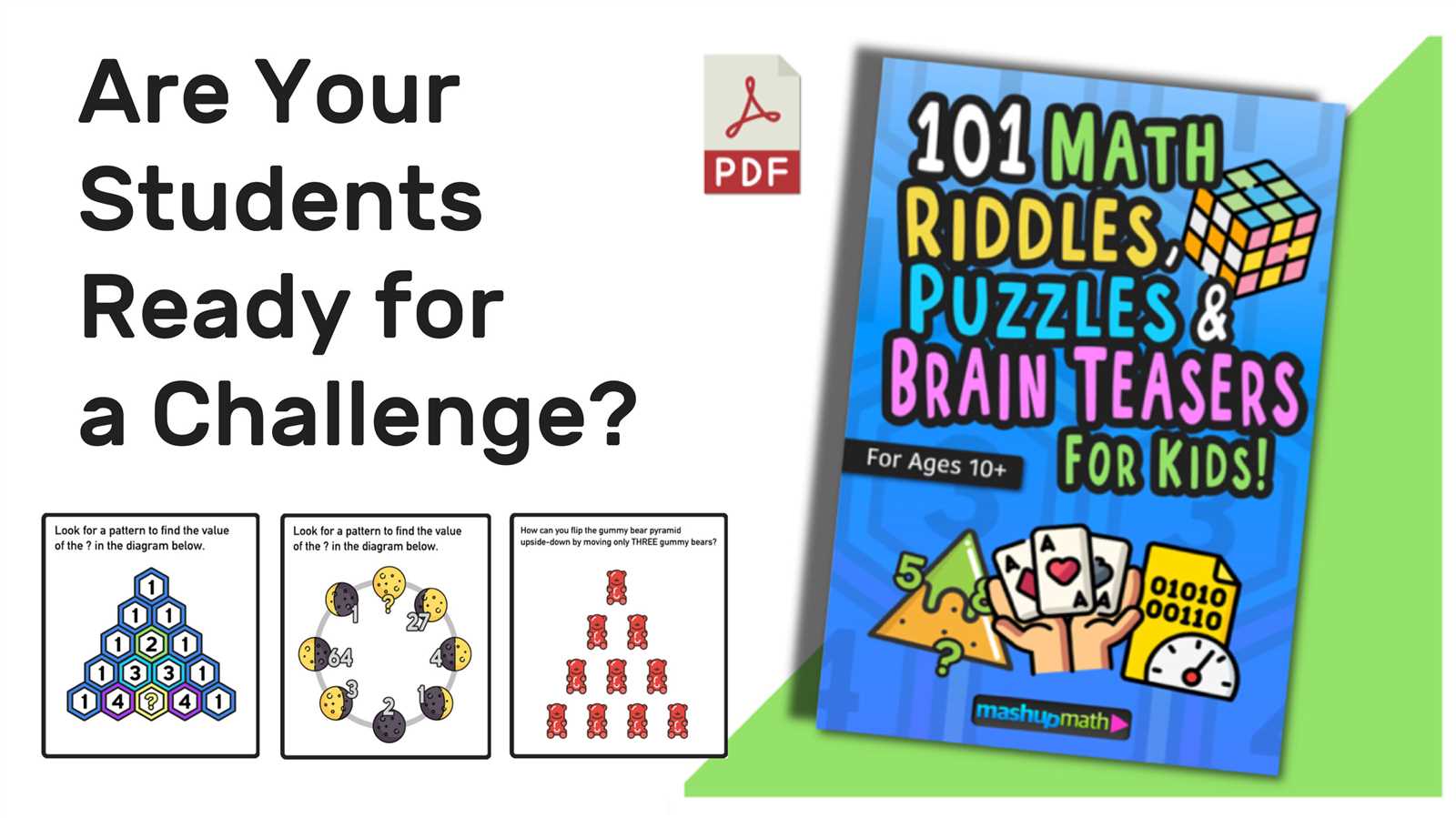
Here are some puzzles that can get your family thinking and laughing:
- If two’s company and three’s a crowd, what are four and five?
- I have keys but open no locks. What am I?
- The more you take, the more you leave behind. What am I?
These engaging challenges will spark conversation, encourage problem-solving, and make your family game night memorable for everyone!
Discover the Fun in Numbers
Numbers are more than just symbols on a page–they hold endless possibilities for discovery and excitement. While often perceived as complex or intimidating, numbers can be a source of enjoyment when approached with the right mindset. Exploring numerical puzzles and challenges can unlock new perspectives, turning abstract concepts into fun and engaging experiences.
The Magic of Numerical Patterns

One of the most intriguing aspects of numbers is the patterns they create. Whether in sequences, equations, or geometric shapes, numbers reveal beautiful connections that are both surprising and rewarding to uncover. These patterns can be explored in various ways, from simple arithmetic to more complex mathematical structures.
| Pattern Type | Example | Explanation |
|---|---|---|
| Arithmetic Sequence | 2, 4, 6, 8, 10 | Each number increases by 2. |
| Fibonacci Sequence | 1, 1, 2, 3, 5, 8, 13 | Each number is the sum of the two preceding ones. |
| Prime Numbers | 2, 3, 5, 7, 11 | Numbers divisible only by 1 and themselves. |
Unlocking the Secrets of Numbers
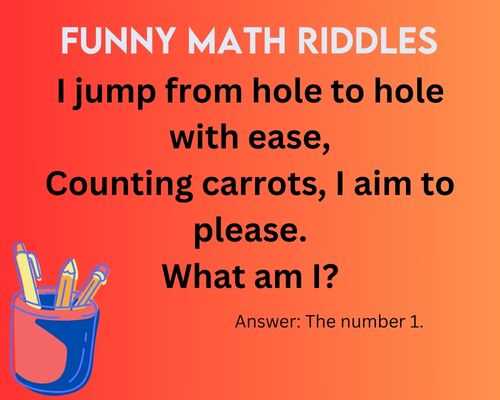
Once you start exploring the hidden patterns and relationships, you begin to see numbers in a whole new light. The more you uncover, the more you realize that numbers are not just tools for calculations–they are puzzles waiting to be solved. Whether you’re solving a numerical sequence or unraveling a complex equation, every challenge brings a sense of discovery that makes learning an adventure.
Creative Ways to Solve Math Riddles
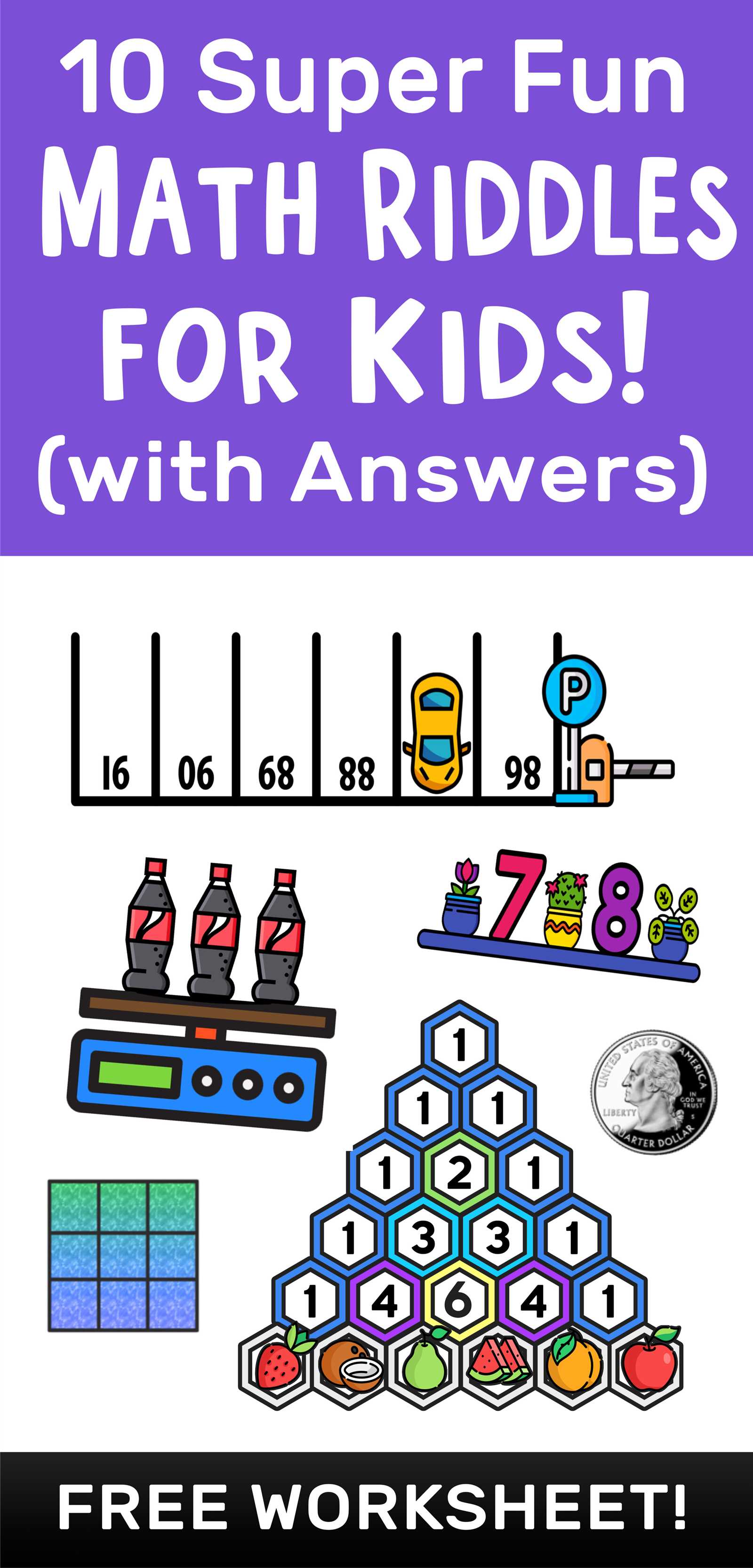
Solving numerical challenges can be more than just following standard procedures. By thinking creatively, you can uncover innovative solutions that make the problem-solving process both enjoyable and rewarding. Approaching these challenges with a fresh perspective allows you to explore different methods and discover new strategies, turning what might seem like a complex puzzle into an exciting mental exercise.
One way to think creatively is by breaking the problem down into smaller, more manageable parts. This can help you identify patterns or find connections that aren’t immediately obvious. Alternatively, you can try approaching the problem from a different angle, considering alternate solutions or visualizing the problem in a different way. Flexibility in thinking is key to unlocking unexpected solutions.
Another creative strategy is to use trial and error, testing different possibilities until you find the right one. This approach encourages experimentation, helping you build confidence as you see which methods work and which don’t. Don’t hesitate to try various techniques and ideas before you settle on the best approach.
Easy Math Riddles for Kids to Enjoy
Engaging young minds with fun and simple puzzles can help foster a love for learning while boosting their critical thinking skills. These types of challenges are perfect for children as they allow them to exercise their brains in a playful and interactive way. By solving these problems, kids can improve their problem-solving abilities and develop a sense of accomplishment, all while having fun.
Simple Challenges to Get Started
Here are a few easy problems that kids can enjoy solving. These challenges are designed to be straightforward, yet stimulating, encouraging young learners to think outside the box and sharpen their minds in a fun way.
| Challenge | Solution |
|---|---|
| What has keys but can’t open locks? | A piano. |
| I am an odd number. Take away one letter, and I become even. What am I? | Seven (remove the ‘s’ and you get “even”). |
| How many months have 28 days? | All of them. |
Why These Puzzles Are Great for Kids
These challenges are perfect for young learners because they are easy to understand yet require some thought. They encourage kids to think critically, analyze clues, and come to a logical conclusion. Solving these types of problems boosts their confidence and prepares them for more complex challenges later on. Plus, they get to experience the joy of discovery, which is one of the best ways to keep them engaged in learning.
Advanced Riddles to Challenge Experts
For those who have mastered basic puzzles and are ready to tackle more complex challenges, advanced problems offer a stimulating way to push the boundaries of logical thinking. These puzzles require a deeper understanding of concepts and often involve multiple steps to solve. Engaging with such problems sharpens your problem-solving skills and helps develop a more strategic approach to tackling difficult tasks.
Experts often enjoy puzzles that combine creativity, logic, and abstract thinking. These challenges tend to test not just one’s ability to calculate, but also to think critically about the relationships between different variables. They push individuals to explore alternative solutions and consider nuances that might be overlooked in simpler puzzles.
Challenging Problems for the Experienced Mind
Below are a few problems that will test your reasoning and analytical abilities. These are perfect for individuals who enjoy complex problem-solving and are looking to enhance their cognitive skills.
| Problem | Solution |
|---|---|
| A man is pushing his car along a road when he comes to a hotel. He shouts, “I’m bankrupt!” Why? | He is playing Monopoly. |
| You see a house with two doors. One door leads to certain death, and the other leads to freedom. There are two guards, one who always tells the truth and one who always lies. You can ask only one question. What do you ask? | “If I were to ask the other guard which door leads to freedom, what would they say?” Then choose the opposite door. |
| A man gave one son 10 cents and another son was given 15 cents. What time is it? | It’s 1:25. |
Why These Problems Are Ideal for Experts
These types of puzzles require a strong understanding of logic and reasoning. They often involve lateral thinking, where the answer might not be immediately obvious and may require unconventional methods of approach. For those looking to further develop their analytical skills, these challenges provide the perfect mental workout. They not only stimulate your mind but also help you to think more critically and methodically in your everyday life.
Riddles That Will Make You Laugh
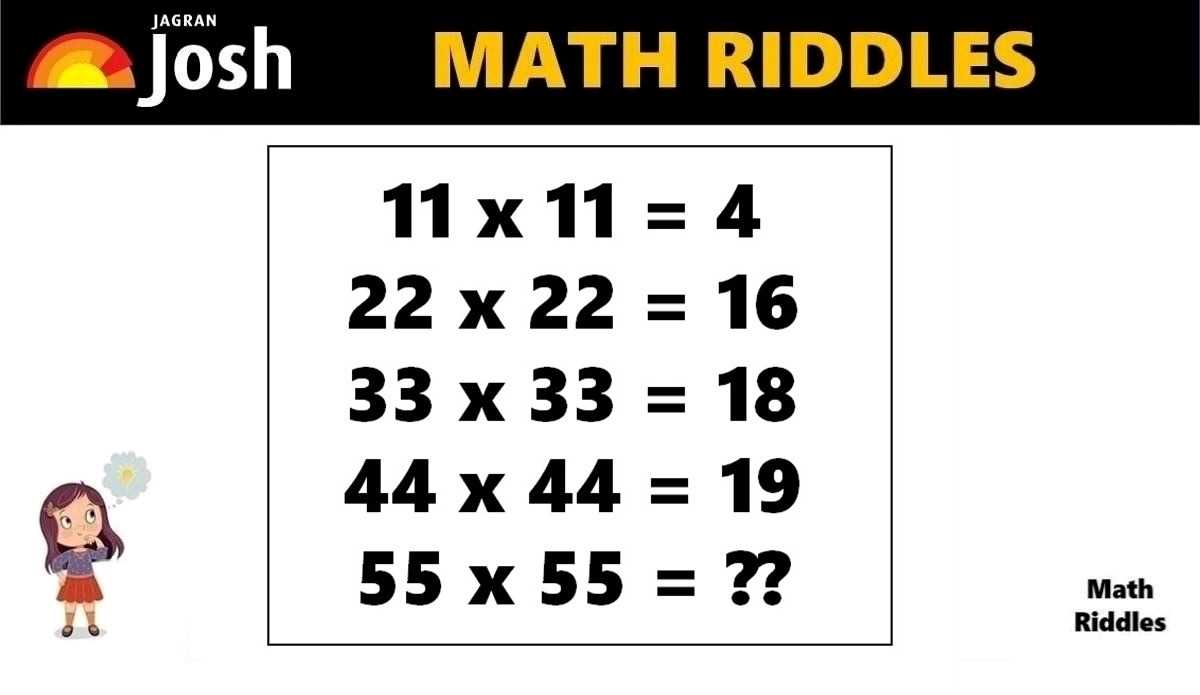
Sometimes, the best way to brighten your day is through a good puzzle that brings a smile to your face. These challenges are designed not just to engage your mind, but to tickle your funny bone as well. They combine wit and logic in a way that leads to surprising and often amusing solutions. Perfect for lightening the mood, these puzzles are as enjoyable as they are thought-provoking.
Whether you’re solving them alone or sharing them with friends, these mind teasers are sure to spark a laugh. They offer a fun way to unwind while still exercising your brain. And while they may seem simple at first, their quirky nature often leaves you chuckling at the unexpected twists they offer.
Simple Yet Hilarious Challenges
Here are a few clever challenges that will have you laughing out loud as you try to figure them out:
- Why did the scarecrow win an award? Because he was outstanding in his field!
- Why can’t you trust an atom? Because they make up everything!
- What do you get when you cross a snowman and a vampire? Frostbite!
- Why don’t skeletons fight each other? They don’t have the guts!
The Joy of Solving Silly Puzzles
While these problems may seem light-hearted, they still require a bit of thought to solve. Their charm lies in their simplicity and the way they turn ordinary situations into something amusing. These challenges are perfect for sharing with others, as they are guaranteed to bring some laughter to any gathering. So, the next time you’re looking for a fun way to exercise your brain, consider tackling these silly puzzles that bring both joy and a little bit of clever thinking.
How to Decode Complex Math Puzzles
Tackling intricate puzzles can often feel like trying to crack a code. These types of challenges demand more than just basic reasoning–they require strategic thinking and a solid grasp of problem-solving techniques. Breaking down a complex puzzle into manageable steps is essential for finding the solution without feeling overwhelmed. Understanding how to approach these tricky scenarios is key to not only solving them but also enjoying the process along the way.
The first step in decoding any difficult puzzle is to carefully read through all the details. Sometimes, the answer is hidden in plain sight, and it’s only by paying attention to the subtle clues that the solution becomes clear. Once you’ve gathered all the information, start by looking for patterns or relationships between the elements of the problem. Often, the most complex puzzles can be broken down into smaller, easier-to-understand parts.
Strategies for Solving Complex Puzzles
Here are some strategies that can help you decode even the most challenging problems:
- Start Simple: Begin by solving any part of the puzzle you can. Breaking the puzzle into smaller pieces makes it less intimidating.
- Look for Patterns: Many puzzles hide their solutions in repeating sequences or hidden connections between elements. Identifying these patterns can be a big breakthrough.
- Use Elimination: Sometimes, eliminating impossible solutions can quickly narrow down your options, making the puzzle more manageable.
- Think Outside the Box: If you’re stuck, it’s often helpful to step back and consider the puzzle from a different angle or perspective.
Common Pitfalls to Avoid
As you tackle more complex challenges, here are a few mistakes to avoid:
- Rushing the Process: It’s easy to jump to conclusions, but taking your time to fully understand the problem will lead to a better solution.
- Overcomplicating the Problem: Not every puzzle requires an overly complicated approach. Sometimes the simplest solution is the best.
- Missing Key Details: Pay close attention to every word and element in the puzzle. Often, important clues are hidden in plain sight.
By using these techniques, you’ll be better equipped to decode and solve even the most challenging puzzles. With a little patience and practice, you’ll find that even the most complex problems can be tackled with ease and creativity.
Riddles That Strengthen Logical Thinking
Engaging in puzzles that challenge reasoning and deduction can greatly enhance cognitive abilities. These types of problems require not just creativity but also systematic thinking, pushing individuals to evaluate different possibilities and think critically. When approached methodically, they help develop a deeper understanding of patterns, relationships, and the steps necessary to arrive at a solution. Over time, such exercises sharpen the mind and improve decision-making skills.
By practicing these types of challenges, people learn to break down complex scenarios into simpler components, analyze each part, and work through the problem step by step. This exercise in structured thinking can be especially beneficial in everyday situations, as it trains the brain to approach new problems in a more organized and efficient manner.
Why Logical Puzzles Are Essential for Cognitive Growth
These puzzles are more than just a fun way to pass the time; they serve as powerful tools for enhancing the brain’s ability to solve problems logically. Here are some reasons why they are so effective:
- Improved Critical Thinking: Logical puzzles encourage you to assess all aspects of a situation before jumping to conclusions, which is a key aspect of strong decision-making.
- Enhanced Problem-Solving Skills: Regularly working on these puzzles trains the brain to find solutions through methodical analysis rather than relying on guesswork.
- Boosted Memory: Engaging with complex challenges helps improve short-term and long-term memory, as it requires recalling information and patterns.
- Stronger Focus and Patience: These activities require attention to detail and persistence, qualities that improve concentration and patience over time.
Types of Logical Challenges That Help Develop Reasoning
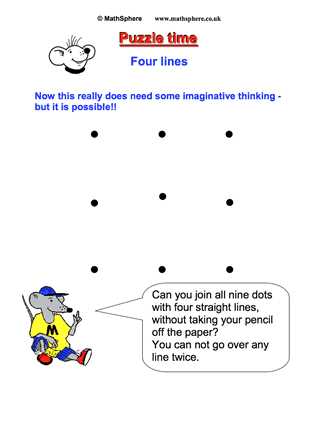
Here are a few examples of challenges that promote logical thinking:
- Sequence Problems: Identifying the pattern in a sequence of numbers or shapes sharpens pattern recognition and logical deduction.
- Deductive Reasoning Puzzles: Problems where the answer is determined by a set of logical rules force the mind to follow a linear, systematic approach.
- Word Problems: These scenarios require translating real-world situations into logical equations, which enhances both reasoning and linguistic comprehension.
By solving these types of problems, individuals not only have fun but also train their brains to think more logically, enhancing their mental agility and problem-solving abilities. Over time, this skill becomes an invaluable asset in both professional and personal contexts.
The Role of Humor in Math Learning
Incorporating humor into the learning process can significantly enhance engagement and retention. By introducing light-hearted elements into serious subjects, learners can approach difficult topics with a more relaxed and open mindset. Laughter and amusement can reduce stress, making complex concepts feel less intimidating and more accessible. This approach fosters a positive learning environment, where students feel comfortable exploring new ideas without fear of failure or confusion.
Humor also promotes active participation and stimulates curiosity, encouraging students to think creatively about solving problems. When humor is effectively used in educational settings, it can break down barriers, making abstract concepts more relatable and easier to understand. This, in turn, increases the chances of students grasping challenging material, as they become more engaged and motivated to learn.
How Humor Improves Retention and Understanding
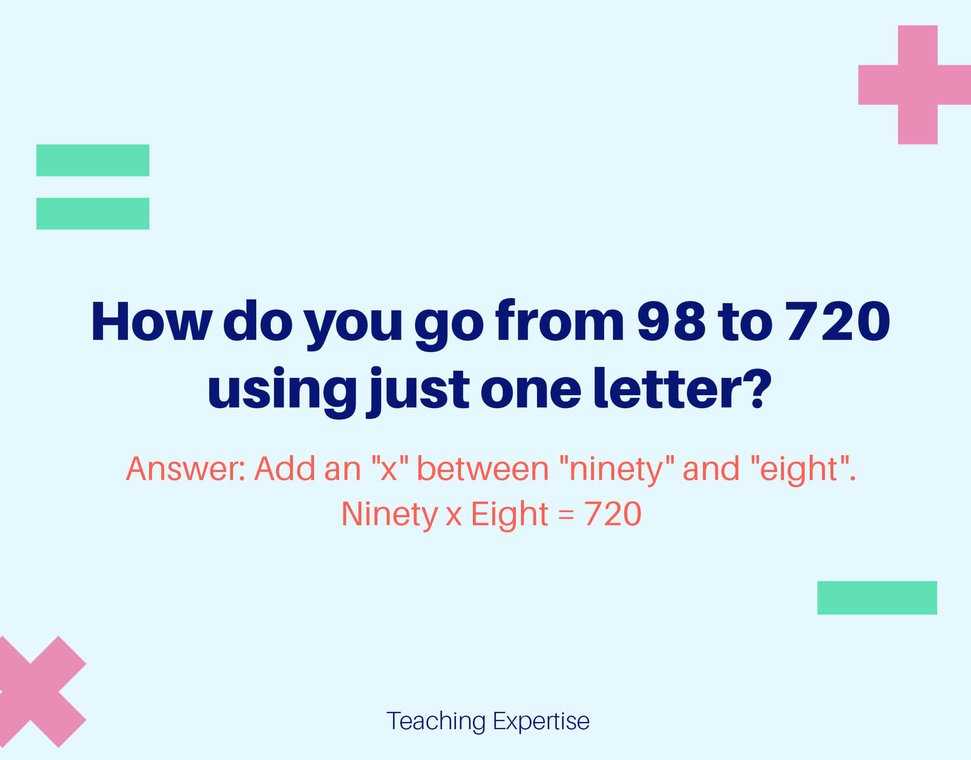
Using humor in the classroom isn’t just about making students laugh; it’s about creating memorable learning experiences. Here’s how it can enhance comprehension:
- Reduces Anxiety: Humor helps alleviate the stress associated with difficult subjects, allowing students to approach lessons without anxiety.
- Promotes Long-Term Memory: When students associate information with something enjoyable, they are more likely to remember it.
- Encourages Critical Thinking: Humor often involves clever twists or unexpected solutions, which can help students develop their problem-solving skills.
- Increases Motivation: Enjoyable learning experiences boost overall interest in the subject, prompting students to engage more actively.
Practical Ways to Introduce Humor in Learning
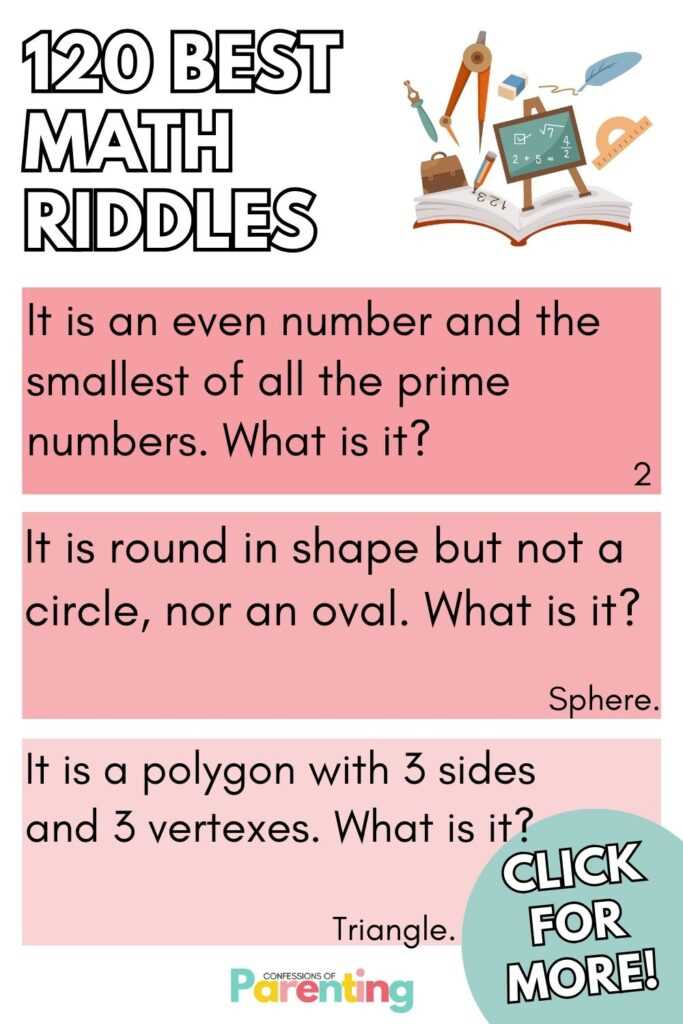
There are many creative ways to integrate humor into the study process:
- Incorporate Funny Examples: Use amusing analogies or metaphors to explain difficult topics, making them more relatable.
- Gamify Lessons: Turn learning into a fun game, where humor plays a role in the challenges or rewards.
- Share Lighthearted Stories: Tell funny anecdotes that connect to the material being taught, making it more memorable.
- Use Visual Aids: Humorous illustrations or cartoons can simplify complex ideas and add a playful touch to the learning process.
Ultimately, humor has the power to transform the way students interact with and understand academic content. By using it strategically, educators can make even the most difficult topics feel approachable and enjoyable.
Solving Puzzles Together for Fun
Engaging in brain-teasers as a group can foster collaboration and spark creativity among participants. Working through these challenges collectively encourages communication, teamwork, and problem-solving skills. As everyone brings different perspectives to the table, it leads to a deeper understanding of the puzzle at hand. The shared experience of figuring out a solution provides a sense of accomplishment and strengthens bonds within the group.
Whether you’re gathering for a family game night, a classroom activity, or just spending time with friends, solving these puzzles together can be a fun and rewarding experience. It not only enhances mental agility but also creates a lively, interactive environment where everyone’s input is valued. Plus, the joy of discovering the solution as a team makes the experience even more satisfying.
Benefits of Collaborative Puzzle Solving
Working together on a challenge provides various advantages, including:
- Enhanced Communication: Sharing ideas and discussing possible solutions helps sharpen communication skills.
- Teamwork and Cooperation: Collaboration promotes cooperation, as each member contributes their insights.
- Problem-Solving Skills: Group discussions encourage creative thinking and innovative approaches to finding solutions.
- Increased Engagement: The social aspect makes the process more enjoyable, keeping everyone involved and motivated.
Tips for Making Puzzle Solving More Enjoyable
Here are a few tips to enhance the experience when solving puzzles as a group:
- Encourage Open Discussion: Allow everyone to voice their thoughts and ideas without judgment.
- Make It Friendly: Keep the atmosphere light and fun to ensure no one feels pressured.
- Work in Teams: Divide the group into smaller teams for a more competitive and dynamic challenge.
- Celebrate Successes: Celebrate small victories along the way to keep morale high.
Incorporating group puzzle-solving into your routine can be a fantastic way to bond, learn, and have fun all at once. The process itself becomes a memorable experience, filled with laughter, challenges, and teamwork.